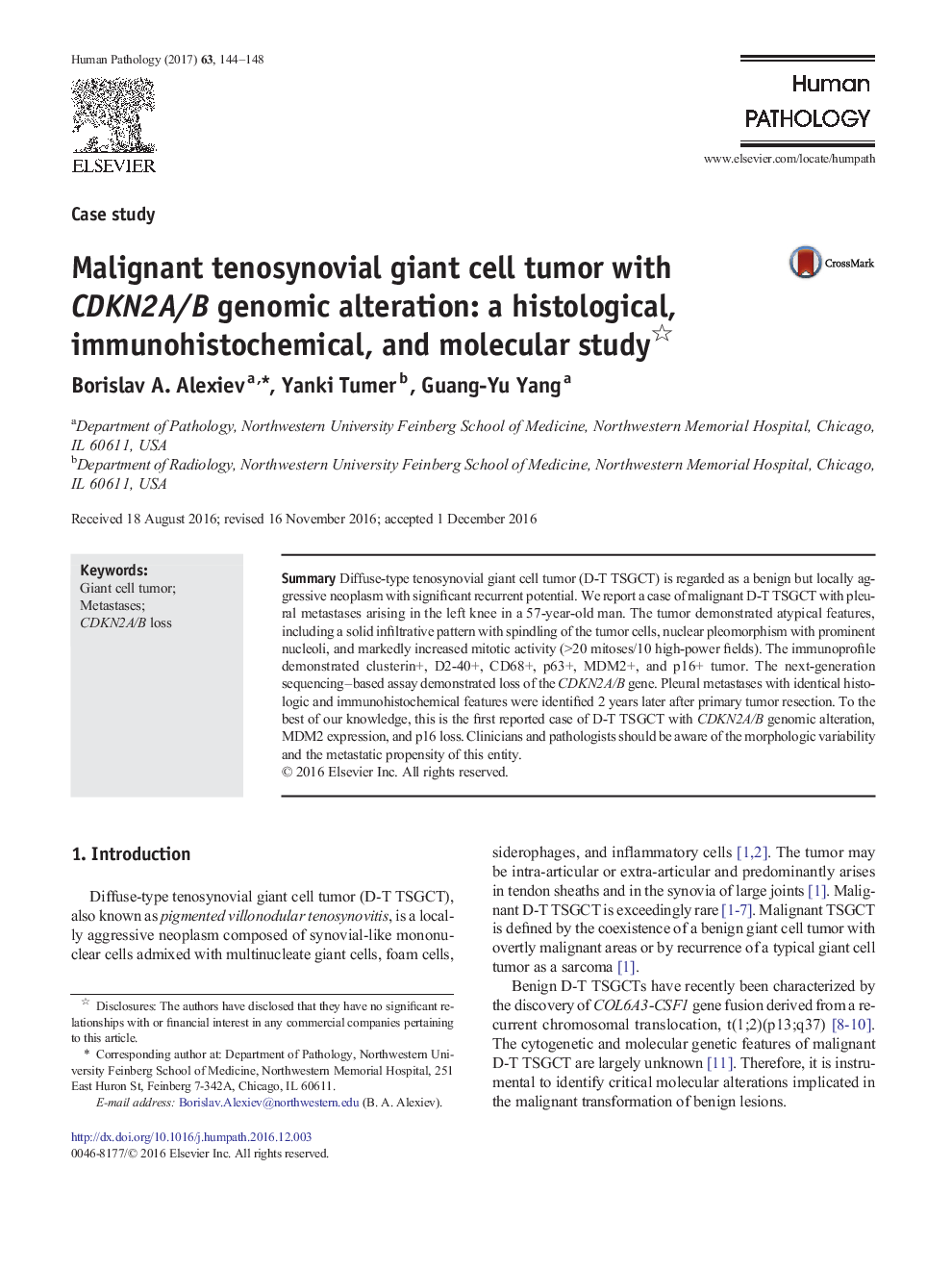| Article ID | Journal | Published Year | Pages | File Type |
|---|---|---|---|---|
| 5716409 | Human Pathology | 2017 | 5 Pages |
â¢A rare case of malignant diffuse-type tenosynovial giant cell tumor with pleural metastases is described.â¢Next-generation sequencing-based assay demonstrated CDKN2A/B gene loss in tumor.â¢MDM2 and p16 immunohistochemistry may provide a sensitive means for assessing CDKN2A status.
SummaryDiffuse-type tenosynovial giant cell tumor (D-T TSGCT) is regarded as a benign but locally aggressive neoplasm with significant recurrent potential. We report a case of malignant D-T TSGCT with pleural metastases arising in the left knee in a 57-year-old man. The tumor demonstrated atypical features, including a solid infiltrative pattern with spindling of the tumor cells, nuclear pleomorphism with prominent nucleoli, and markedly increased mitotic activity (>20 mitoses/10 high-power fields). The immunoprofile demonstrated clusterin+, D2-40+, CD68+, p63+, MDM2+, and p16+ tumor. The next-generation sequencing-based assay demonstrated loss of the CDKN2A/B gene. Pleural metastases with identical histologic and immunohistochemical features were identified 2 years later after primary tumor resection. To the best of our knowledge, this is the first reported case of D-T TSGCT with CDKN2A/B genomic alteration, MDM2 expression, and p16 loss. Clinicians and pathologists should be aware of the morphologic variability and the metastatic propensity of this entity.
